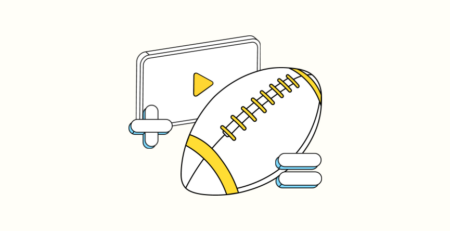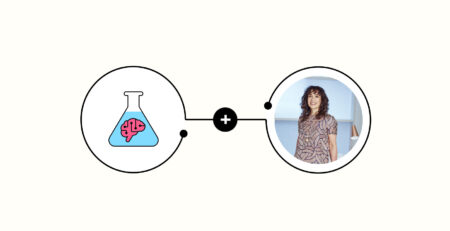Lessons from 2008 for digital marketers in an age of coronavirus (COVID-19)
Running a business in 2008 was pretty terrifying. Everything felt abstract, the potential impact on my business was unknown, and the future was completely uncertain.
But having made it through it, I think there are some things we learned during that global financial crisis that might help with the current global pandemic. You don’t go through a financial crisis without learning a thing or two from it, so here’s my advice on how to weather this storm.
Things aren’t the exact same
There are some key differences between the 2008/2009 crisis and this one.
There’s the obvious: the last one was a purely financial crisis. Having started in the world of finance, its greatest impact was on finance. The human impact was a result of all the knock-on effects of businesses going under and people losing their jobs. There is a different type of uncertainty around this crisis, as recovery can only properly start once the virus is contained.
The next biggest difference, aside from the sudden imposed remote working, is the sheer pace of change. I remember the full timeline of the last crisis: in August 2007, we started feeling the initial tremors that led to Lehman brothers going under a year later in September 2008, and I recall April 2009 as the beginning of the worst quarter of that era for our business.
Contrast that with an outbreak none of us had really heard of in December, few of us paid much attention to in January, only some took seriously in February, and that has now left us in complete lockdown in March. And it’s not just the pace, but the scale of this crisis is also unprecedented. The scale of job losses alone is completely unparalleled:
weekly jobless claims, a 30σ event pic.twitter.com/LEO7s5TXsH
— 📈 𝙻𝚎𝚗 𝙺𝚒𝚎𝚏𝚎𝚛 📊 (@lenkiefer) March 26, 2020
What to remember from 2008
Even though the two crises are very different in nature, the 2008/2009 recession is the only thing that many of us have lived through that had a remotely similar impact on businesses.
In early 2009, our new business pipeline completely dried up for a while, and was slow and tentative for a long while longer. We actually experienced less client churn than expected, however – digital ended up growing through that period as it had been under-invested in.
At the end of the day, things didn’t come to a complete halt in 2009. The world didn’t stop.
So, what did I take away from that period?
1. This crisis, like others that have come before it, will come to an end. Most businesses will not only survive it, but come out the other side able to thrive again.
2. Business goes on. Even in the depths of a recession, there is continued investment and new spending.
3. We have an important responsibility. Businesses have an important role in working towards economic recovery to (re)create jobs and help people get through the non-medical repercussions of the pandemic.
Why marketing still matters during a recession
What experts said in 2009 still holds true – from a long-term perspective, now is not the time to cut advertising.
During the 2008/2009 recession, many companies saw marketing expenses as costs that could easily be cut, when tons of research showed that it’s better to avoid reducing marketing expenditure and invest in technology.
For example, McKinsey’s analysis of companies in recession found that both obvious cost-cutting moves as well as counterintuitive actions such as increasing sales and marketing expenditures can improve a company’s situation for the recovery phase.
As John Quelch put it in the Financial Times in 2008: “It is well documented that brands that increase advertising during a recession, when competitors are cutting back, can improve market share and return on investment at lower cost than during good economic times.”
The reason for that is that, as difficult as recessions are, they present an opportunity to build up your company’s value-driven messaging to drive engagement and maintain a strong brand to reduce business risk. Where other advertisers are decreasing budgets, you can grow your share of voice on digital platforms that people are now spending more time on, and maintain the perception of a healthy brand. Note that the vast majority of consumers don’t think brands need to stop advertising during this outbreak – they’re expecting you to continue reaching out to them.
There are some great examples of competitors taking different approaches during recessions shared by Victoria Searl: Kellogg’s vs Post during the Great Depression, Pizza Hut and Taco Bell vs McDonalds in the 1990s, and Amazon in 2009 – all showing that those who advertise during a crisis reap the benefits soon after.
Some practical tips that helped our clients during the financial crisis
In the face of the ongoing uncertainty, I’m referring back to the marketing tips that worked in 2008/2009, because what helped us and our clients back then might help businesses again now. If you’re going bust or going gangbusters, this advice may not apply to you. But for those businesses confident that they will survive while being temporarily dampened, remember that SEO is a perfect investment at a time like this if your business can support it:
- Your competitors will be pulling back spend, so all the general marketing reasoning applies.
- It can be harder to achieve a return on direct customer acquisition activity while conversion rates are down, but SEO activity tends to pay off in 6-12 months, which is ideal in this scenario.
- If you have the resources and bandwidth, this is also the perfect time to make the riskier changes that you’ve been wanting to do, but struggling to justify to the business. Now is a great time to handle site migrations or anything else involving redirects or URL changes. The risk is significantly lower while conversion rates are down.
Don’t give up – get used to the new normal
This may be a prolonged slow and uncertain period for many of us, and the upcoming changes will take a lot of getting used to. But the economic crisis caused by COVID-19 will hopefully not be as detrimental or as long-lasting as the 2008/2009 recession.
While this is ongoing, media consumption is going to keep growing, and digital advertising is going to remain in a much better place than traditional media. So don’t give up on marketing – it won’t give up on you.



